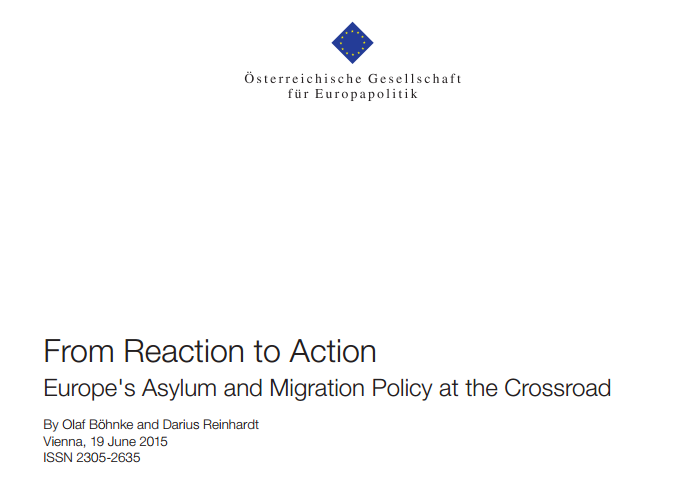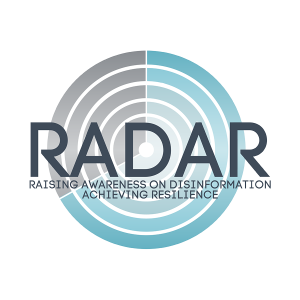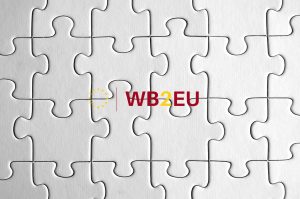Policy Recommendations
- Securing human lives at sea as the top priority of a joint humanitarian search and rescue operation.
- Introducing legal ways for migration and asylum in Europe.
- Emancipating from merely spontaneous reaction-based security approaches towards sustainable action addressing the real causes of immigration.
Abstract
The numbers of people dying on their way to Europe has increased over the past decade. The EU has been unable to step up a comprehensive strategy how to deal with the situation. So far EU-member states often only agreed to security-oriented means such as strengthening of border control or fighting human trafficking with military capabilities. The EU needs to open the scope of analysis and carefully manage a cross-cutting approach between a wide range of policy areas involved. In this Policy Brief we argue that the EU needs to focus especially on three issues: Securing lives in the Mediterranean Sea, establishing legal ways for immigration to Europe and fostering cross-cutting efforts in dealing with the topic.
********************************
“If Europe does not present a united front to stop tragedies like this from happening, there will only be one winner: the populists.”[1]
Reports about the innumerable numbers of drowned refugees in the Mediterranean Sea have become a permanent part of our news coverage in Europe these days. When in April 2015 two ships with approximately 2.000 refugees drowned within one week, politicians across Europe acted as taken by surprise about the dimension of these human tragedies as if they have not been obvious for a long time now. But as a matter of fact, Europe has continuously reacted only to the symptoms of the so-called Mediterranean crisis, in order to avoid a substantial, comprehensive and cross-cutting approach, which would have to address the real causes. This policy brief outlines the ground for a more pragmatic way forward. It must be clear however that there are neither short-term nor easy answers to the current situation.
The state of the current EU immigration policy is an undeniable benchmark for the state of the European Union as such. In times of a sluggish economy, debates on Grexit and Brexit, the Ukraine and Russia crisis and the prospect of an ever destabilized Middle East, the topic of asylum and migration is not just a challenge, but a chance for Europe to show its capacity to be a reliable and efficient global actor. Thus the current situation is not only a moral and legal question but can be seen as a stress test for the future of the European integration project and the credibility of the EU´s commitment for human rights and a value-based foreign policy.
The basic flaw of EU asylum and migration policies
The recent tragedy in the Mediterranean Sea sparked a vital debate in the EU and was followed by a series of high-level meetings. On April 20th a joint meeting of the EU’s foreign and interior ministers in Luxembourg resulted in a ten-point action plan on migration. Two months later the EU focused on strengthening its border-control agency Frontex and the establishment of a Common Security and Defence Policy-operation to “strike down on traffickers”.[2] At the same time the debate on common European relocation and resettlement programmes including a quota-system as well as attempts to establish legal ways for migration to Europe seem to be deadlocked by various EU-member states. It seems that security concerns have ruled out leeway for alternative policy approaches as it follows the misassumption that asylum and migration flows can be managed by strengthening security at EU borders and assisting third countries to increase their border security. This is simply an externalization of our very own problems.[3] However, recent years have proven that this approach is insufficient and even paradox – a more holistic, cross-cutting analysis of the situation is needed.
Short-Term Action – Securing human lives at sea
On November 1st, 2014 the Frontex operation “Triton” (supported by 21 EU-member states[4]) replaced the Italian search and rescue (SAR) mission “Mare Nostrum”. The joint EU-operation however followed a security approach rather than focusing on the humanitarian dimension as Mare Nostrum did. Triton had three serious flaws: (1) The budget accounted for less than a third (2.8 million euro) of what Italy had spent on its own.[5] (2) The area of the joint operation was – following the pull factor concerns of some member states[6] – reduced to the maritime area of Italy’s Southern shores.[7] (3) The Frontex mandate is not sufficient to guarantee an adequate and pro-active SAR mission[8] and to ensure compliance with international and European law.[9]
When in April 2015 the deadly catastrophe happened, it became obvious that by scaling down Mare Nostrum to Triton the EU did not trigger a decrease in the number of refugees and migrants coming to Europe, but this way increased the numbers of mortal attempts.[10] This result could have been foreseen but member states preferred in a state of narrow-mindedness to only concentrate on defending European borders rather than looking ahead for an adequate long-term response.[11] But the risk of death is not holding people back if they are trying to escape from misery, war, conflict, and oppression in their home countries.[12] The concept of deterrence might work in military or security terms but not for human beings in dire need of protection, “over-emphasising the pull effect is not only factually incorrect but morally indefensible.”[13] As a reaction to the drowning of more than 700 people on April 18th the EU decided to at least triple the Frontex Budget for operation Triton in order to step up a SAR operation.[14] However the Frontex mandate is still not adequate for a comprehensive SAR operation and the operational area remains insufficient. The EU needs to establish a civilian SAR mission to secure life at sea in order to meet its moral and legal obligations[15] in the Mediterranean.
Medium-Term – Europe needs legal ways for migration
Even a sufficiently equipped SAR operation alone will not solve the refugee problem. Legal ways for migration and asylum are needed to defuse the situation in a sustainable manner. In theory the Dublin system distributes responsibilities regarding proceeding of asylum and international protection within Europe. The “first entry rule” has led to an unfair system, which draws on the wrong assumption that protection levels and procedures are harmonized between EU-member states. Regardless of the directives on asylum procedures[16], qualification[17] and reception conditions[18], standards still differ significantly within the EU. The Dublin system has proven to be ineffective and insufficient. It does neither guarantee fair and just procedures for refugees[19] nor does it provide a sound basis for intra-European responsibility sharing.[20] The serious shortcomings have also been underlined by recent case law of the Court of Justice of the European Union[21] as well as the European Court of Human Rights.[22]
In the face of the highly ineffective nature of the current system[23], the EU needs to move forward.[24] Two concrete and pragmatic steps towards a solidarity-based Common European Asylum and Migration Policy (CEAMP) would make a significant difference:
(1) As proposed by a study of the European Commission in 2013[25] the establishment of a joint European Asylum Service (EAS)[26] could supervise and accelerate the development and implementation of the CEAMP (regardless of the particular design) and share information between member states. The agency would proceed asylum applications, determine responsibilities across the EU, and oversee a uniform application of EU asylum law. It could further manage cooperation with international organizations such as UNHCR or IOM. The EAS would repeal costly and insufficient multiplication of mechanisms on EU and national level.
(2) The realization of a truly solidarity-based CEAMP cannot rely on a “one size fits all” approach; it needs to take into account differences between EU-member states.[27] Two reasons demonstrate, why member states should be supported taking their share in the solidary system: Firstly, refugees in Europe will always – according to their language skills, job opportunities and social networks – move within the Schengen area. Secondly, national debates are often fuelled by EU-sceptics and right-wing populists, according to which their countries take an unfair share compared to other member states (even if that was not the case) or that refugees and migrants have a negative impact on the national labour market and the economic development. A “European Adjustment Fund” would offer an incentive for member states to shoulder their responsibilities in the CEAMP. This approach would enable a process of harmonizing standards within the EU without taking them for granted in the first place. The fund should first and foremost aim at regional and community levels in order to provide concrete assistance where it is needed. This would offer job opportunities for teachers (language and integration courses), adequate accommodation for arrivals, support for local administration and back national welfare provisions. Thereby the “Adjustment Fund” could assist politicians (especially those on the local level) to counter xenophobic and populist arguments depicting refugees and migrants as a threat to the local labour markets and welfare provisions.
In this regard, the current Asylum, Migration and Integration Fund (AMIF)[28] with its highly bureaucratic structure and insufficient financial provision turned out to be inadequate to meet the goals mentioned above.[29]
A European Asylum Service as well as a European Adjustment Fund could boost and coordinate attempts to step up resettlement and relocation programmes. It could further assist to open legal ways for refugees. While the UNHCR recommended the EU should resettle 200.000 Syrian refugees out of 4 million, the commission only suggested a number of 20.000.[30] As long as the EU does not establish legal ways for refugees and migrants to enter Europe it will not only play into the hands of traffickers and accept implicitly that thousands and thousands of refugees will die in front of the shores of Europe. But it also indirectly paves the way for more nationalistic, populist and right-wing rhetoric in Europe.[31]
In a nutshell, EU-member states need to overcome their 28 national asylum and migration systems[32] and finally focus on joint efforts for a comprehensive European approach that moves beyond the strengthening of border security.[33] Europe needs an open and honest debate about solidarity and the fair sharing of responsibility between the EU-28 as outlined in Tampere and Art. 80 TFEU.[34] Only by strengthening its efforts to introduce legal ways for migrants to enter Europe the EU can stop the Mediterranean Sea to be a de-facto mass grave.
Long-Term – A holistic approach
On May 18th the European Council established the EUNAVFOR Med operation in order to tackle immigration from Libya by military means.[35] Instead of establishing an adequate CEAMP and stepping up holistic efforts to tackle the challenge, EU-member states have so far embraced a highly questionable and symbolic military approach. The main goal of EUNAVFOR Med is “search, seize and disrupt the assets of smugglers”.[36] Besides the question how to identify smuggler boats and how such an operation could possibly comply with international law, the Council acknowledged that boarding a ship with smugglers and refugees “has a high risk of collateral damage including the loss of life”.[37] Further, by exercising control over migrants and refugees, EU military personal will – just like Frontex – be bound to the principle of non-refoulement.[38] It is unclear how, in such a situation, the EU could possibly guarantee every person their right to an individual screening of their potential entitlement for a protection status.
The goal of EUNAVFOR Med is to tackle the root causes of migration in Libya, however the rising numbers of refugees arriving from Libya is only the tip of the iceberg. Until now the gross of people arriving through the country have been nationals from countries such as Eritrea, Mali, Syria or Afghanistan, who have a high chance to be granted a protection status once they reach Europe. Therefore, the operation only externalizes the problem by cutting escape routes for refugees. Smuggling itself is not the cause of the current situation, it rather is the consequence of rising turmoil in the Middle East and conflicts in Africa, increased visa restriction and border securitization.[39] As long as the EU does not take anticipatory action in order to prevent misery, conflict, war, and oppression in the countries of origins, there will always be smuggling. EUNAVFOR Med will only lead to a diversion of migration routes, a rise in smuggler prices and further loss of lives.
The EU should look ahead and step up a holistic approach. To overcome the security-framing by interior ministries the EU should embrace a more cross-cutting analysis of the current situation.[40] The on-going and obvious failure of the EU´s border securitization focused policies “constitutes a “push” factor for xenophobic and anti-immigration parties from Rome to Stockholm”.[41]
While ministers of interior have pushed for increased border controls and regulation of entries,[42] there is a whole range of other policies that need to be addressed and coordinated to tackle root causes. These range from foreign affairs to employment, humanitarian, education and trade policies. In Libya, for example, the EU contributed significantly by its foreign policy decision to support only one of the two governments to a freeze of the current conflict, which turned the country into the main hub for refugees and smugglers. By its trade policy on the other hand, like for example the Economic Partnership Agreements (EPA) with three regional economic state communities in Africa (ECOWAS, EAC and SADC), the EU takes significant influence on local businesses which often turn out to be more in favour for European companies than vice-versa, which makes people leave their countries.[43]
In order to tackle the Mediterranean crisis in a substantial way, the EU should consider appointing a new commissioner in charge of managing policy goals from the different ministries involved. Last year, former Italian foreign minister Emma Bonino has proposed to appoint a “Mediterranean Commissioner” in order to engage with Europe’s neighbours “beyond a security-oriented migration commissioner”.[44] The commissioner could take an active role in bridging trade, humanitarian assistance, development, migration, asylum, and foreign policy interests and should also engage in matters of cultural exchange, co-operation, education, infrastructure, and support to civil society. At the same time he or she should be at the table of foreign ministers who currently review the European Security Strategy from 2003, which does not include the words “refugees” or “migration” even once.
Solidarity beyond Words – Time to move on
In the absence of fast and easy answers, the EU has increasingly focused on short-sighted securitization and externalization approaches to the refugees challenge. Though the EU has continuously expressed the need to tackle the root causes of the crisis, it has acted just the opposite way. This has fuelled xenophobic and populist views.
Interweaving the cross-cutting short-, medium- and long-term policies described above, the EU could prove itself as an effective conflict manager. By this the EU would emancipate itself from merely spontaneous reaction-based approaches and show that it is able to jointly agree on decisive and sustainable action.
1) Dimitris Avramopolous, EU Commissioner for Migration, Home Affairs and Citizenship.
2) Council of the European Union (2015): Council conclusions on CSDP.
3) Vollmer, Ruth (2014): Europäische,Migrations- und Außengrenzpolitik–Wege aus der Sackgasse?, Sicherheit und Frieden.
4) European Council on Foreign Relations (2015): Response to immigration crisis in Mediterranean (European foreign policy scorecard). Available at: www.ecfr.eu/scorecard/2015/issues/58
5) European Council on Refugees and Exiles (2014): Mare Nostrum to End.
6) Kortweg and Mortera-Martinez point out that northern EU-member states, including the UK, Germany and the Netherlands have criticised Mare Nostrum for possible pull-factor effects: Korteweg, Rem/Mortera-Martinez, Camino (2015): Dead in the water: Fixing the EU’s failed approach to Mediterranean migrants, Center for European Reform.
7) Frontex Press Release (2014): Frontex launches call for participation of the EU Member States in Joint Operation Triton.
8) Fabrice Leggeri, head of Frontex told the Guardian: “Triton cannot be a search-and-rescue operation. I mean, in our operational plan, we cannot have provisions for proactive search-and-rescue action. This is not in Frontex’s mandate, and this is in my understanding not in the mandate of the European Union”. In: The Guardian (22.04.2015): EU borders chief says saving migrants’ lives ‘shouldn’t be priority’ for patrols.
9) Reinhardt, Darius (2014): Menschenrechte Pushed Back – Wie die neue Seeaußengrenzverordnung das Hirsi-Urteil zurückweist, Kritische Justiz. Vierteljahresschrift für Recht und Politik.
10) IOM Press Release (2015): IOM Monitors Migrant Arrivals, Deaths in Mediterranean. Available at: https://www.iom.int/news/iom-monitors-migrant-arrivals-deaths-mediterranean
11) The security approach has not only direct implication on the design of operation Triton but has also serious implications for comprehensive medium- and long-term policy approaches.
12) Dempsey, Judy (2015): Migrants Challenge Europe’s Comfort Zone, Carnegie Europe.
13) Korteweg, Rem/Mortera-Martinez, Camino (2015): Dead in the water: Fixing the EU’s failed approach to Mediterranean migrants, Center for European Reform.
14) Council of the European Union Press Release (2015): Special meeting of the European Council, 23 April 2015 – statement.
15) Fischer-Lescano, Andreas/ Löhr, Tillmann/Tohidipur, Timo (2009): Border Controls at Sea: Requirements under International Human Rights and Refugee Law, Int J Refugee Law.
16) European Parliament and of the Council (2013): Directive 2013/32/EU on common procedures for granting and withdrawing international protection.
17) European Parliament and of the Council (2011): Directive 2011/95/EU, on standards for the qualification of third-country nationals or stateless persons as beneficiaries of international protection, for a uniform status for refugees or for persons eligible for subsidiary protection, and for the content of the protection granted.
18) European Parliament and of the Council (2013): Directive 2013/33/EU on laying down standards for the reception of applicants for international protection.
19) Report of the Special Rapporteur on the human rights of migrants, François Crépeau (2015): Banking on mobility over a generation: follow-up to the regional study on the management of the external borders of the European Union and its impact on the human rights of migrants, UN office of the high Comissioner for Human Rights.
20) Williams, Richard (2015): Beyond Dublin – A Discussion Paper for the Greens/EFA in the European Parliament.
21) Court of Justice of the European Union (2011): Press Release Nr. 140/11.
22) European Court of Human Rights (GC), Case of M.S.S. v. Belgium and Greece, 21 January 2011, Case no. 30696/09.
23) Fratzke, Susan (2015) Not Adding Up: the Fading Promise of Europe’s Dublin System, Migration Policy Institute Europe.
25) Urth et al. (2013), Study on the Feasibility and legal and practical implications of establishing a mechanism for the joint processing of asylum applications on the territory of the EU, European Commission, Directorate General Home Affairs, Home/2011/ERFX/FW/04, 13.02.2013.
26) Such an Agency could be developed by revisiting and expanding the competencies of the European Asylum Support Office (EASO) as proposed by Carrera, Sergio/Gros, Daniel/Guild, Elspeth (2015): What priorities for the new European agenda on migration?, Centre for European Policy Studies.
27) James Hathaway has proposed the Idea of “common but deferentiated responsibilities” for the international refugee protection system: Hathaway, James C and Steinbeis, Maximilian, Germany should take up a leadership role towards a global solidarity system of refugee protection, Verfassungsblog, 19.05.2015.
28) EU Regulation No 516/2014, 16 April 2014.
29) Bertozzi, Stefano (2014): Are Europe’s migration funds adequate to meet growing challenges? Institut Francais des Relations Internationales. Available at: www.ifri.org/fr/publications/editoriaux/actuelles-de-lifri/are-europes-migration-funds-adequate-meet-growing
30) European Commission (2015): Press Release, European Commission makes progress on Agenda on Migration. Available at: http://europa.eu/rapid/press-release_IP-15-5039_en.htm
31) Toaldo, Mattia (2015): Migrations Through and From Libya: A Mediterranean Challenge, Istituto Affari Internazionali.
32) Terrón Cusí, Anna (2015) Migration and the Mediterranean, European Council on Foreign Relations.
33) Report of the Special Rapporteur on the human rights of migrants, François Crépeau (2015), Fn. 19.
34) Carrera, Sergio/Gros, Daniel/Guild, Elspeth (2015): What priorities for the new European agenda on migration? Centre for European Policy Studies.
35) Council of the European Union (2015): Fn. 2.
36) Council of the European Union (2015): Council establishes EU naval operation to disrupt human smugglers in the Mediterranean.
37) Background Paper from the Council Meeting on 18th May 2015, Published by Statewatch.
38) Reinhardt, Darius (2014): Fn. 9
39) Toaldo, Mattia (2015): Fn. 34.
40) Collett, Elizabeth (2015): The development of EU policy on immigration and asylum, Migration Policy Institute Europe.
41) Toaldo, Mattia (2015): Fn. 34, S.4.
42) Trauner, Florian/Ripoll Servent, Adriana (2015): Policy Change in the Area of Freedom, Security and Justice: how EU Institutions matter. London: Routledge.
43) Bagooro, Sylvester (2014): West Africa and Europe trade: Who will benefit more?”, Al Jazeera 22.06.2014.
44) Bonino, Emma (2014): The EU needs a commissioner for the Mediterranean, European Council on Foreign Relations.
ISSN 2305-2635
The views expressed in this publication are those of the authors and not necessarily those of the Austrian Society of European Politics or the organisation for which the authors work.
Citation
Böhnke, O., Reinhardt, D. (2015). From Reaction to Action. Europe’s Asylum and Migration Policy at the Crossroad. Vienna. ÖGfE Policy Brief, 22’2015







